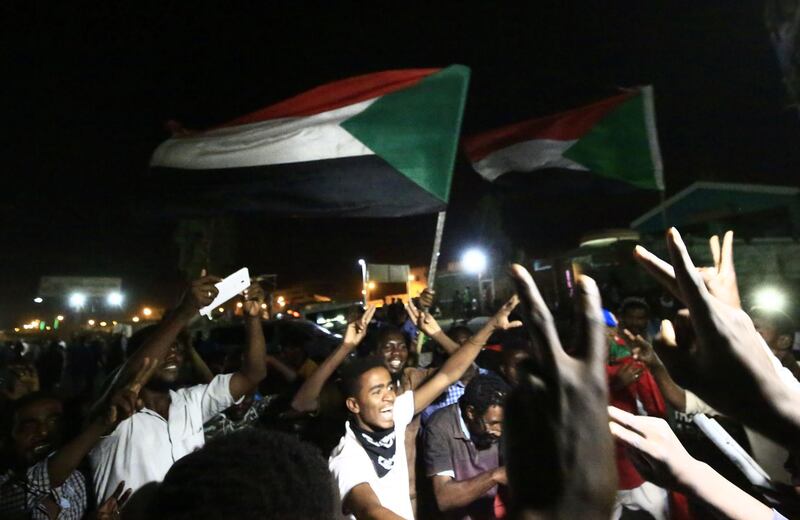After weeks of protests, historic change and political upheaval, Sudan now has a roadmap for its future. On Monday, military leaders reached an agreement with the country's popular opposition movement for a three-year transition to civilian rule. Two bodies will be formed to govern Sudan until elections occur – a sovereign council and a 300-member legislature. The opposition grouping, which grew out of the protest movement, will dominate the legislature.
Here, Sudan is showing the world how to steward a political transition without mass bloodshed. It is now five months since the start of demonstrations, which morphed into a popular uprising against Omar Al Bashir, who spent nearly 30 years as the nation’s president. The sit-in that began outside the military headquarters in Khartoum in early April is still ongoing, long after Al Bashir was ousted and taken to a maximum-security prison.
The movement has been characterised by hope and joy, and those involved are determined to make the most of this opportunity to forge a new path for Sudan. The country's long-term challenges are only just beginning, but this is people power at its best – built on dialogue, compromise and consensus.
The process has not been completely smooth. Suspicion has been directed towards military leaders, many of whom were once loyal to Al Bashir. On Monday, at least four protesters and one member of the security forces were killed in clashes on the streets of Khartoum. These recent deaths highlight the need to honour the dozens of Sudanese on both sides who have sacrificed their lives since December to reach this point. The plan for a transition to civilian rule and a better Sudan is a fitting tribute to them.
As UAE Minister of State for Foreign Affairs Dr Anwar Gargash wrote on Twitter, this deal “puts Sudan on the path of stability and recovery after the years of the dictatorship of Al Bashir and the (Muslim) Brotherhood. Sudan looks to the future with optimism.” The pace of change in Sudan has been extraordinary, but unless economic challenges are addressed, the immense progress Sudan has made could be in vain.
The Sudanese economy has been in dire straits since the secession of oil-rich South Sudan in 2011. This has been exacerbated by systemic corruption and misrule. The protests that toppled Al Bashir began as an angry response to rising bread and fuel prices and the economic factors that gave rise to a revolution have not disappeared. Today, millions of Sudanese live in poverty. The UAE and Saudi Arabia were quick to step in with a $3 billion joint aid package to stabilise the troubled nation after Al Bashir’s departure. Similar support from other donors must be provided, to ease Sudan’s passage into a new era and prevent a possible slide into chaos. Only when the Sudanese people have growth, jobs and services will the country be on a steady course forward.





